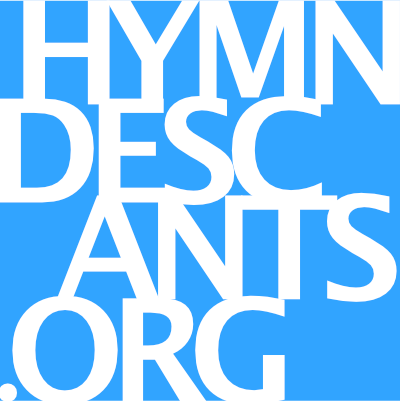Descant to the 18th C. hymn tune TYSK.
In this audio demo: standard harmonization > ad lib organ bridge > harmonized descant Free score.
1 hymnal
God Himself is with us;
let us all adore Him
and with awe appear before Him!
God is here within us;
souls in silence fear him,
humbly, fervently draw near him.
Now his own who have known
God in worship lowly;
yield their spirits wholly
2. descant
Come abide with in me
let my soul like Mary
be thine earthly sanctuary
Come indwelling Spirit
with transfiguring splendor;
love and honor will I render.
Where I go here below
let me bow before thee
know thee and adore thee.
The Writer
God himself is with us was written by the Reformed writer, preacher, poet, and mystic Gerhard Tersteegen - who lived his life in the city of Moers,* now in Germany. Once an independent city-state of the Holy Roman Empire, the city has at whiles been Dutch, French, Spanish, and Prussian before the current German border encapsulated the town. Without benefit of higher education, he was apprenticed for a while as a merchant, but withdrew from all secular activities to devote himself to sacred writing and thought. He stopped attending even Reformed church in 1719 (the year the tune TYSK was first published) and began a career as an analog to the 'non-conforming' ministers of England - a preacher and teacher without holy orders. This deficit of credentials prohibited him from preaching publicly in the town of Moers, and in the Prussian controlled areas around it - but this had no impact on his prodigious creativity. Listeners thronged his house to hear him speak, and he travelled the short distance to Holland to speak publicly.
*on maps of the period, the town would often be listed as Mörs, or even Murs.
The Hymn Text
The text God himself is with us has a history no less convoluted. Originally with five stanzas, it is usually today published in three-verse form, translated in the mid-1700's by the Moravian scholars Frederick William Foster and John Miller. The remaining verses appear (sort of) in Hymnal 1940, the result of a composite translation for the Epsicopal Church by William Henry Sloane Coffin - who also contributed an additional verse of his own. The matter wasn't settled even then, as Hymnal 1982 changes the order of the verses - but the new order results in a wonderful text to expand with a descant! Citing Mary (and transfiguring power), it has festal possibilities for the solmenities of Advent, Mary, and the Transfiguration. Add one of the verses omitted from Sloane Coffin's translation (see 'fifth verse' tab), and you have a five-stanza treatment that expands to encompass All Saints, any saint, St Michael and All Angels, and your own church's feast of title. Both verses are included in this set.
The Tune
The tune TYSK, which appeared in Stockholm in 1718, derives its name from the Nordic word for 'German,' evidently referring to a German church? style? - or perhaps hinting at an earlier tune for the text God himself is with us, which tune (ARNSBERG) was composed 40 years earlier by Joachim Neander - a name synonymous with German hymnody. In the English-speaking world, TYSK appears in very few hymnals at the moment - Epsicopal, Anglican, and Reformed almost exclusively.
A fifth verse?
The verse omitted from Hymnal 1982, and sung as verse two in the Foster-Miller 'canonical' three-verse arrangement is:
God Himself is with us: hear the harps resounding!
See the crowds the throne surrounding!
"Holy, holy, holy," hear the hymn ascending,
Angels, saints, their voices blending!
Bow thine ear to us here: hear, O Christ, the praises
That thy church now raises.
Updated: Jul 14 2014
Descant verse:
Come abide within me; Let my soul like Mary,
be thine earthly sanctuary.
Come in dwelling spirit, with transfiguring splendor,
love and honor will I render.
Where I go here below, let me bow before thee,
know thee, and adore thee.
– Gerhard Tersteegen,1697 – 1769

